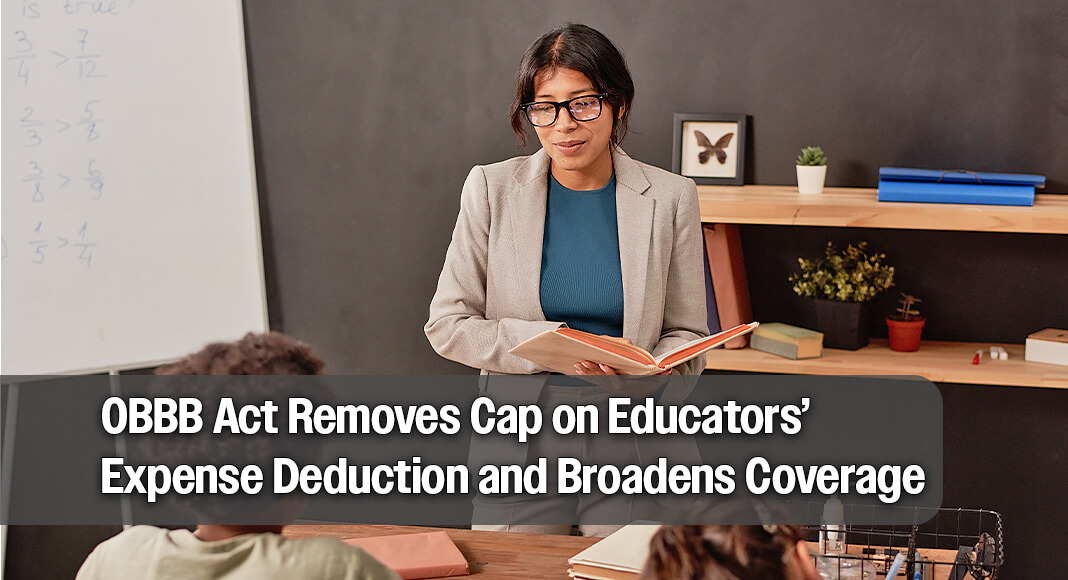
Mega Doctor News
Texas Border Business / Mega Doctor News
The “One, Big, Beautiful Bill Act” (OBBB), signed into law on July 4, 2025, makes a significant change to how teachers and other school staff can deduct work-related expenses. According to the new rules, “effective for years after 2024, the deduction for educators’ unreimbursed expenses is no longer capped and the definition of qualified expenses is expanded.”
In past years, educators could deduct some of their classroom-related costs, but the deduction was limited. Under prior law, the cap was $300 per educator. This amount was available to K–12 teachers, instructors, counselors, principals, and classroom aides who spent their own money on school supplies. The new law removes that cap entirely. As the legislative text states, “the deduction is no longer capped at a fixed amount (previously, it was capped at $300 per educator).”
This means that teachers and staff will now be able to deduct the full amount of their eligible expenses, even if those expenses run far beyond the previous limit. For many educators who regularly spend hundreds or even thousands of dollars on classroom materials, this represents a significant tax relief.
The definition of what qualifies has also been expanded. According to the law, “in addition to classroom supplies, qualified expenses will include an extensive range of items related to instruction, such as equipment, software, instructional materials, professional development, extracurricular and coaching supplies, etc.” This expansion reflects the reality that modern teaching involves much more than paper and pencils. Coaches and sponsors have also been added to the list of eligible educators. The law notes specifically that “coaches and sponsors are added to the list of eligible educators (K–12 teachers, instructors, counselors, aides, etc.).”
Another essential feature is that this deduction is considered “above the line.” That means educators can take advantage of it even if they do not itemize deductions on their tax returns. Above-the-line deductions reduce adjusted gross income, which can in turn lower taxable income and affect eligibility for other tax credits or benefits.
For example, under the old system, a teacher who spent $1,200 in a year on classroom supplies could only deduct $300. Under the new law, the teacher will be able to deduct the entire $1,200. If the teacher also spent $500 on professional development courses and $200 on software for classroom use, those amounts would also qualify.
The change underlines how the OBBB Act seeks to provide what lawmakers called “significant new relief measures.” By removing the cap and expanding the scope of expenses, Congress is acknowledging the financial burden that educators often carry personally to support their students.
While the long-term impact remains to be seen, the immediate effect is clear. Starting with the 2025 tax year, educators will no longer be limited to a small deduction for their expenses. As the legislation summarizes, “the deduction for educators’ unreimbursed expenses is no longer capped and the definition of qualified expenses is expanded.”
See related stories;










